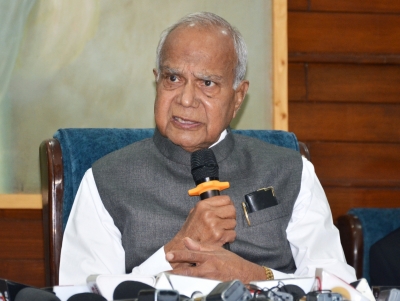Chandigarh: Punjab Governor Banwarilal Purohit has reserved three Bills, including the one that aims to replace him with the chief minister as the chancellor of state-run universities, for the consideration of the President.
The Bills were passed by the state assembly during the June 19-20 session which the governor had earlier termed illegal.
“The Hon’ble Governor, Punjab has reserved the following three bills for the consideration of the Hon’ble President of India as per article 200 of the Constitution of India,” said a Raj Bhavan statement issued Wednesday.
The three bills, that will be sent to President Droupadi Murmu, are the Sikh Gurdwaras (Amendment) Bill, 2023, the Punjab Universities Laws (Amendment) Bill, 2023, and the Punjab Police (Amendment) Bill, 2023.
One more Bill — the Punjab Affiliated Colleges (Security of Service) Amendment Bill, 2023 — was also passed during the June session.
While the Sikh Gurdwaras (Amendment) Bill was aimed at ensuring a free-to-air telecast of ‘Gurbani’ from the Golden Temple in Amritsar, the Punjab Universities Laws (Amendment) Bill was for replacing the governor with the chief minister as the chancellor of state-run universities.
The Punjab Police (Amendment) Bill circumvents the Union Public Service Commission in the process of selecting the state police chief.
The governor’s move comes days after the Supreme Court called the June 19-20 session constitutionally valid. Purohit had earlier called the June session as “patently illegal.”
The issue of summoning the session by extending the budget session and Bills passed during it have been at the centre of a row between the Bhagwant Mann dispensation and the Raj Bhavan.
November 24, Chief Minister Mann had written to Purohit requesting him to give his assent to the pending five bills passed by the Vidhan Sabha. The governor at that time said that they were under his “active consideration and appropriate decision according to law will be taken expeditiously”.
Purohit, last week, granted assent to the Punjab Affiliated Colleges (Security of Service) Amendment Bill, 2023, which was aimed to streamline the functioning of the Punjab Educational Tribunal for government-aided private colleges.
Another bill — the State Vigilance Commission (Repeal) Bill, 2022, which was passed in September 2022, is yet to get the governor’s assent.
The Supreme Court, in its November 10 judgement, had directed the Punjab governor to decide on the Bills passed by the legislative assembly during its “constitutionally valid” session held June 19 and 20, saying the governor’s power cannot be used to “thwart the normal course of lawmaking”.
The top court had decided on the plea of the AAP government in Punjab which alleged the governor was not granting his assent to the pending bills which were passed by the assembly.
The apex court had said the governor was “playing with fire” as it held that being the titular head of the state he cannot cast doubt on the validity of an assembly session or withhold his decision indefinitely on bills passed by the House.
The apex court had also questioned the state government for repeatedly adjourning the Budget session sine die instead of proroguing it.
PTI







































